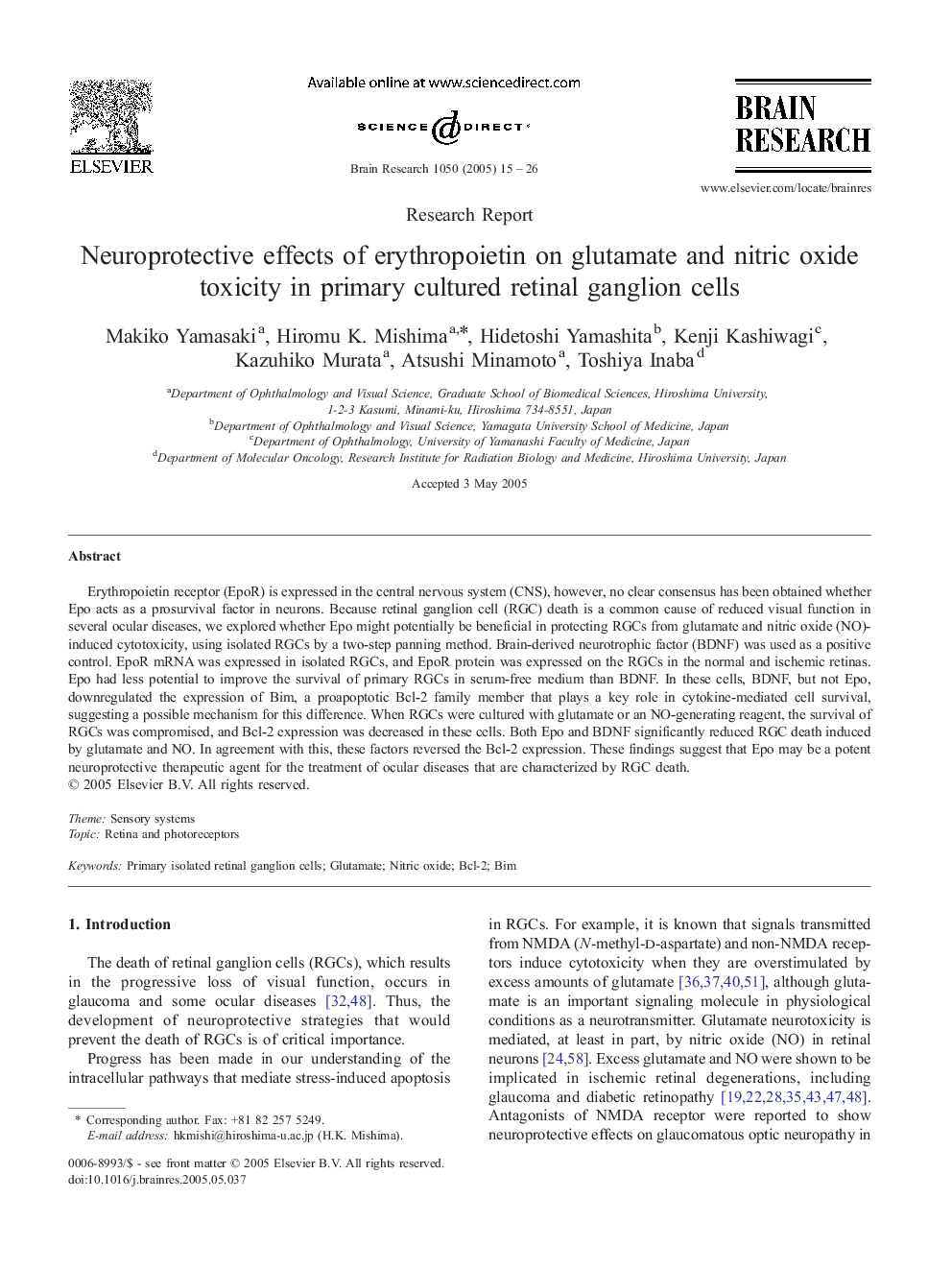| Article ID | Journal | Published Year | Pages | File Type |
|---|---|---|---|---|
| 9416121 | Brain Research | 2005 | 12 Pages |
Abstract
Erythropoietin receptor (EpoR) is expressed in the central nervous system (CNS), however, no clear consensus has been obtained whether Epo acts as a prosurvival factor in neurons. Because retinal ganglion cell (RGC) death is a common cause of reduced visual function in several ocular diseases, we explored whether Epo might potentially be beneficial in protecting RGCs from glutamate and nitric oxide (NO)-induced cytotoxicity, using isolated RGCs by a two-step panning method. Brain-derived neurotrophic factor (BDNF) was used as a positive control. EpoR mRNA was expressed in isolated RGCs, and EpoR protein was expressed on the RGCs in the normal and ischemic retinas. Epo had less potential to improve the survival of primary RGCs in serum-free medium than BDNF. In these cells, BDNF, but not Epo, downregulated the expression of Bim, a proapoptotic Bcl-2 family member that plays a key role in cytokine-mediated cell survival, suggesting a possible mechanism for this difference. When RGCs were cultured with glutamate or an NO-generating reagent, the survival of RGCs was compromised, and Bcl-2 expression was decreased in these cells. Both Epo and BDNF significantly reduced RGC death induced by glutamate and NO. In agreement with this, these factors reversed the Bcl-2 expression. These findings suggest that Epo may be a potent neuroprotective therapeutic agent for the treatment of ocular diseases that are characterized by RGC death.
Related Topics
Life Sciences
Neuroscience
Neuroscience (General)
Authors
Makiko Yamasaki, Hiromu K. Mishima, Hidetoshi Yamashita, Kenji Kashiwagi, Kazuhiko Murata, Atsushi Minamoto, Toshiya Inaba,
